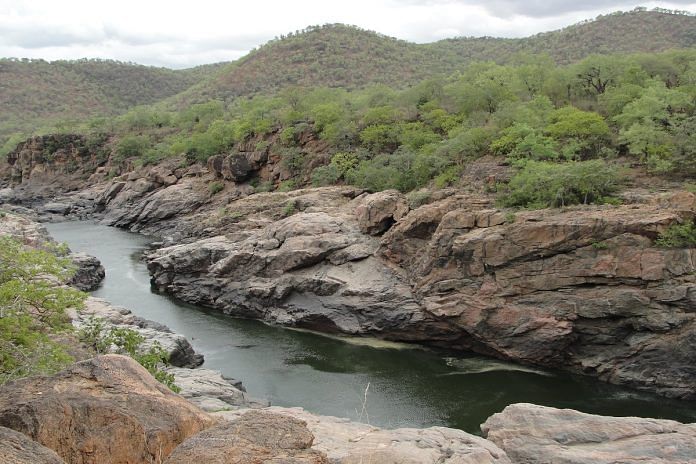The judgment in the Cauvery water-sharing dispute may ultimately be remembered for its timing rather than its content.
The judgment in Cauvery water-sharing dispute may ultimately be remembered for its timing rather than its content. Karnataka and Tamil Nadu are, at present, politically volatile, with the former gearing up for scheduled elections and the latter expecting imminent elections over the last one year. In such a scenario, Cauvery becomes a pre-eminent political agenda.
While Karnataka may claim victory on account of an enhanced allocation of water, the judgment’s fine print will need to be studied in detail. For Siddaramaiah, nevertheless, the judgment will allow him to score crucial electoral points with farmers’ groups and provide adequate drinking water to Bengaluru and surrounding areas.
In contrast, the government of Tamil Nadu finds itself ill-equipped to deal with this betrayal of justice. The water share awarded by the tribunal has been reduced by 14.75 TMCft.
Farmers’ associations from Tamil Nadu, already disenchanted with the present governments, may intensify protests. As always, whether there will be timely implementation of the order is a matter of concern to Tamil Nadu. There is a constant and compelling belief that Karnataka will not release even the revised quota of 177.25 TMCft ordered Friday; more so, in an election year.
It has been reported that the judgment has held that rivers are not properties or assets of individual states, and that the Cauvery Management Board must be constituted. Significantly, the Supreme Court is said to have upheld agreements of 1892 and 1924 between the erstwhile Madras Presidency and Princely State of Mysore, which will now prevent Karnataka from building any dams across the Cauvery. These observations will be welcomed by all lower riparian states that have been locked in water-sharing disputes.
But the overall sense of injustice done to Tamil Nadu will be hard to displace. This very case was brought to the Supreme Court when Karnataka refused to allot the Tamil Nadu’s rightful share of water as ordered by the Cauvery Water Tribunal in 2016.
It is generally felt that Tamil Nadu is already reeling from a number of the Centre’s decisions that have taken away the states’ rights. The Goods and Services Tax, the National Entrance and Eligibility Test, and an uninvited imposition of Hindi have increased distrust of Delhi.
The Bharatiya Janata Party-led Union government now finds itself between a rock and a hard place. There will be increased pressure from Tamil Nadu to implement today’s order to the last drop, whereas, Karnataka is expected to again devise new circumstances to not abide by the judgment completely.
With elections around the corner, the BJP will be reluctant to compel Karnataka, which would have the effect of drawing the wrath of its farmers. And any such measure to sweeten BJP’s political prospects in Karnataka would inversely affect their chances in Tamil Nadu. A triangular political battle may cascade even before water trickles down to the Cauvery delta region.
Manuraj Shunmugasundaram is an advocate & spokesperson for the DMK.




Now is the time to manage the river systems in TN efficiently. Polluting industries like Mettur chemical, TNPL, Sun paper mill, Seshasayee paper , scores of dyeing units in Tirupur, Erode districts, Leather units along Erode, Vellore, Tiupattur should be asked to reduce pollutants. Sand mining may be stopped and may be sourced from other places. Recharge, linkage of small and bigger rivers, reclaiming traditional water bodies involving all stake holders will ensure self sufficiency.